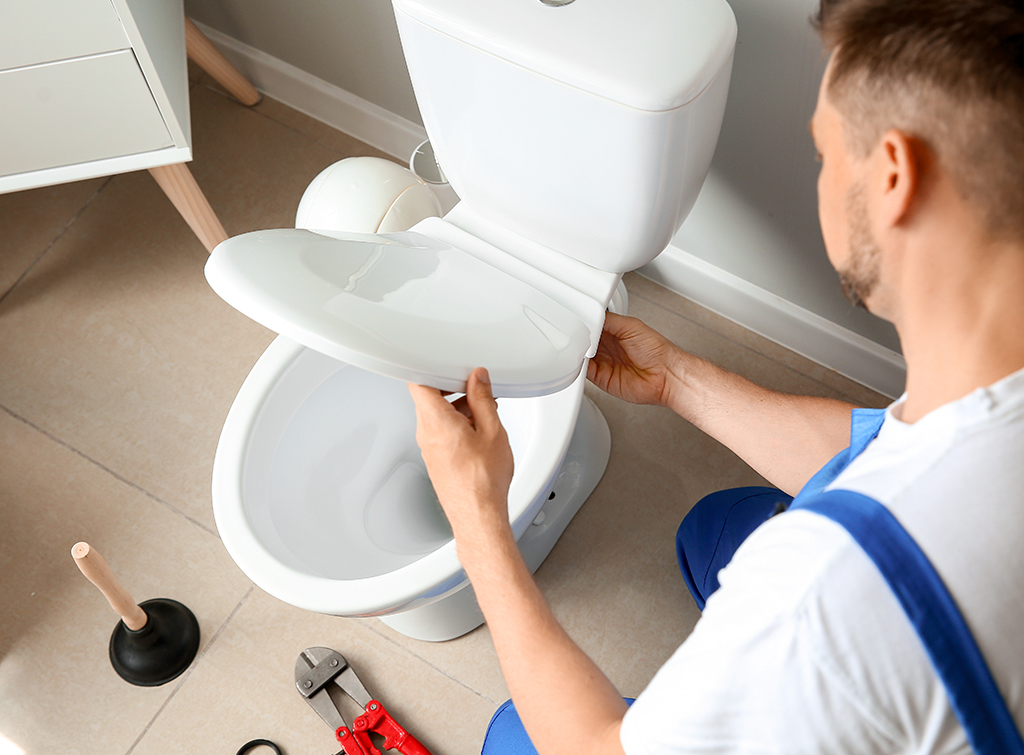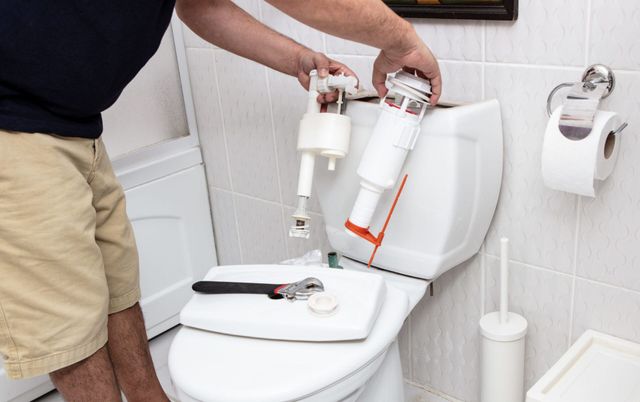First-Time Homeowners: Key Tips for Your Bathroom Plumbing
First-Time Homeowners: Key Tips for Your Bathroom Plumbing
Blog Article
We have come across the article relating to General Plumbing Tips for New Homeowners listed below on the internet and concluded it made good sense to share it with you on my blog.

For new house owners, understanding and preserving shower room pipes can conserve both money and time by protecting against pricey concerns down the line. Below are some necessary washroom pipes pointers to aid you maintain whatever running smoothly.
Familiarize Yourself with the Main Shut-Off Shutoff
Knowing where the main water shut-off shutoff lies in your home is important. This enables you to rapidly turn off the supply of water in case of major leakages or throughout plumbing emergencies, preventing considerable water damages.
Consistently Evaluate for Leaks
Small leakages can cause huge problems. Routinely examine under sinks, around toilets, and near pipes components for any signs of leaks. Search for dampness, little drips, or corrosion. Capturing and repairing leakages early can protect against more major damage and conserve water.
Don't Neglect Slow Drains
If your sink or bathtub is draining pipes gradually, it's typically a sign of an obstruction creating. Resolving this early can prevent a full obstruction. Use a bettor or a plumbing professional's snake to clear out particles. Avoid making use of chemical drainpipe cleaners as they can harm your pipelines over time.
Know What Not to Flush
Commodes are not garbage disposals. Stay clear of flushing anything aside from toilet paper and human waste. Items like wipes, feminine health products, and cotton bud should be thrown away in the trash to avoid clogs and drain backups.
Install Strainers in Drains
Place filters in your sink and bath tub drains pipes to catch hair and various other particles before they enter your pipes system. Cleansing the strainers regularly will assist protect against buildup and maintain water moving freely.
Preserve Your Hot Water Heater
Ensure your hot water heater is readied to an appropriate temperature (commonly around 120 degrees Fahrenheit) to stop scalding and decrease power usage. Flush the tank every year to get rid of debris build-up, which can reduce the efficiency and life expectancy of your heating system.
Update Your Components
If your home has older fixtures, consider updating to more efficient designs. Modern bathrooms, showerheads, and taps are made to use less water while giving good stress, which can substantially minimize your water costs and ecological impact.
Beware with DIY Plumbing Fixes
While it's appealing to handle all home repair work by yourself, beware with pipes. Some problems could need professional competence, specifically if they entail major water lines or sewer repairs. Hiring a specialist can often be extra cost-efficient than do it yourself, especially if it prevents further damage.
Get Ready For Cold Weather
Secure your pipelines from cold during cold weather by protecting pipelines in unheated locations like cellars, attics, and garages. During severe chilly, allow cold water drip from taps offered by subjected pipes to assist avoid freezing.
Arrange Routine Maintenance
Consider organizing yearly assessments with a certified plumbing. They can find issues that you might miss out on, such as concealed leaks or wear and tear on pipelines and components. Routine maintenance aids prolong the life of your plumbing system and can prevent emergency situations.
Final thought
Comprehending and maintaining your home's bathroom pipes can avoid many usual problems. By following these important pointers, you can guarantee your bathroom continues to be practical and efficient, conserving you time and money in the long run.
5 Plumbing Tips for First-Time Homeowners
Know How to Shut Off the Water
In most homes, the water can be shut off at two places: at the appliance or fixture itself, and for the whole house. For instance, look under your sink or behind the toilet. See those little knobs that connect with the pipes? Those are the shut off valves for those fixtures. Simply turn them until the water is off. The main shut off valve (which controls water throughout your entire home) will be outside, where the water feeds into the structure. You might need a dedicated tool, such as a water shut-off key, to shut off the water at the main.
Build an Emergency Plumbing Kit
Everyone knows how important it is to have a high-quality plunger around the house. But there are other things that can help you out when issues arise with the pipes. Building an emergency plumbing kit to solve issues on your own is part of any list of basic plumbing tips. Consider adding these things to create a basic plumbing kit:
Adjustable wrench Tongue-and-groove pliers Screwdrivers Plumber’s tape Pipe sealant Duct tape Set of hex keys Clip light for working under cabinets Auger and hand snake Do a Little Research
Many small leaks can be handled by replacing a small part of the piping system, tightening part of a faucet, or even changing out an aerator. Take the time to browse how-to articles for common plumbing problems, such as a running toilet or slow-draining sink. You might be surprised to find how easy it can be to do simple things yourself, like replace a valve in the back of the toilet.
Keep it Simple With No Chemicals
If you have a clog, you might be tempted by the promises of liquid drain cleaner. While this might work at first, it actually causes more damage deep in the pipes, eventually creating even more problems down the road.
Instead, try using baking soda and vinegar to create a strong fizzing effect that can help break up clogs and clear gunk from drains. Follow it with boiling water to clean the pipes even more thoroughly.
Take Care of Your Garbage Disposal
Be cautious about what you put down the disposal. Avoid pouring in fats, oils, and grease, as these are a surefire way to get a clog. Beware of certain foods too, such as celery or bones, as they can lodge in the works. Always run the disposal with water flowing.
https://modernize.com/homeowner-resources/other/10-plumbing-tips-for-first-time-homeowners

Click Here! Report this page